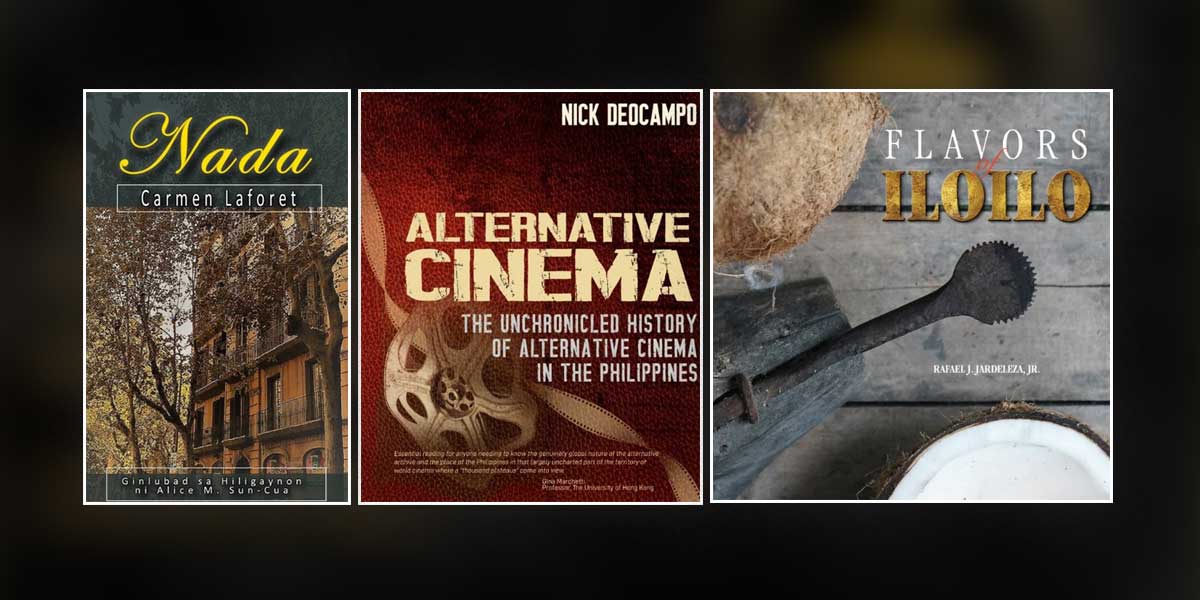
The National Book Development Board (NBDB) and the Manila Critics Circle (MCC) announced the winning books for the 41st National Book Awards (NBA) last week. Among the winning books in the announcement were those authored by writers from Iloilo.
In the Literary Division, Carmen Laforet’s Spanish novel “Nada” won Best Translated Book in Hiligaynon. It was skillfully translated by the accomplished Ilongga doctor and writer, Alice Sun-Cua, and published by Sto Niño de Cebu Publishing House. According to the MCC citation, Sun-Cua’s Hiligaynon translation of Carmen Laforet’s classic Spanish novel Nada brilliantly captures the darkness, melancholia, as well as understated humor of this award-winning narrative. Seamlessly translated into a Language that is almost similar to the source language, Sun-Cua’s translation captivates the reader as it ferries him/her into the beautiful yet bleak and melancholic streets and alleys of Barcelona, to the dingy spaces and murky crevices of an old decrepit house on Aribau Street where grim, conflicted characters whose secrets are as dark as the house they live in dwell. The novel’s powerful images, evocative and lyrical passages, and Sun-Cua’s adept translation is a delight to the Hiligaynon reader who rarely gets to read a book that is a direct translation from Spanish to Hiligaynon.
Moreover, the division highlighted a noteworthy contribution—a film history book penned by Ilonggo director and film historian Nick Deocampo. Entitled “Alternative Cinema: The Unchronicled History of Alternative Cinema in the Philippines,” this publication earned distinction as the Best Book on Media Studies, published by UP Press. According to the MCC citation, Alternative Cinema is a critical, comprehensive and rhizomatic analysis of an under-researched aspect of film studies. Reminiscent of his past books, Alternative Cinema is both academic and journalistic – academic because of the conscientious manner of citations; journalistic not just because of the conversational tone but also because of personal anecdotes incorporated into his analyses of empirical data. Aside from conducting in-depth research on Philippine alternative cinema, Deocampo should be commended for spilling the tea, so to speak, on certain events. With this 888-page weighty tome, Deocampo is indeed a scholar’s scholar worthy of emulation (or envy).
Transitioning to the Non-Literary Division, the inaugural work by Ilonggo luminary Rafael J. Jardeleza Jr., titled “Flavors of Iloilo,” nominated by Kasingkasing Press and published by the Iloilo City Government, also earned its well-deserved spot as the Best Book on Food. According to the MCC citation, Flavors of Iloilo is a cookbook that captures the heart, soul, and spirit of the Ilonggo people. It mirrors their passion for food and dining, showcasing their artistry, creativity, resourcefulness, and respect for local culinary traditions. With 82 carefully selected and kitchen-tested heirloom recipes from home cooks, this collection is a valuable resource for everyday cooking and more elaborate dishes on special occasions. Beyond being a reliable and practical kitchen guide, it serves as a rich source for regional Visayan cooking.
In total, 35 titles emerged as winners out of 235 nominations across 34 categories, spanning seven languages: Filipino, English, Bikol, Binisaya, Hiligaynon, Tausug, and Waray. The National Book Awards occur annually to recognize the best books produced by Filipino writers and publishers. This year’s book winners will get a trophy and a cash prize of PHP 40,000. The awards ceremony is scheduled for February 3, 2024, in Manila.
The achievements of the three distinguished writers, Sun-Cua, Deocampo, and Jardeleza, not only reflect their personal success but also symbolize a triumph for Western Visayas, with Iloilo City standing out in particular. May this acknowledgment of the prowess of Ilonggo writers mark the commencement of a sustained commitment by Iloilo City to bolster and champion various book and literary initiatives within the community.





















